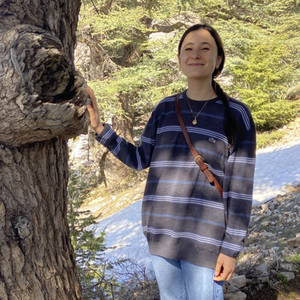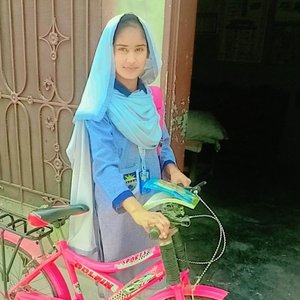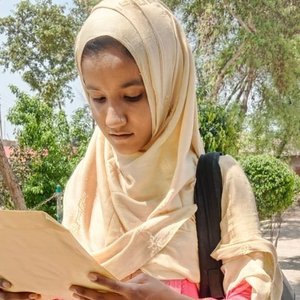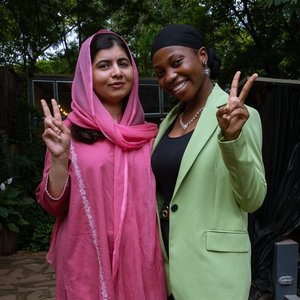Five reasons young women criticised COP27
(Courtesy of Tamia Studio/shutterstock.com)
From prohibitive costs to the Egyptian government’s human rights abuses, youth climate activists spoke out about the issues with this year’s conference.
Last month, more than 35,000 delegates convened in Sharm el-Sheikh, Egypt, for the 27th annual Conference of Parties (COP27), the United Nation’s annual climate change conference.
While youth activists were a powerful part of COP27 — raising awareness about the ways climate change has devastated their communities and calling on leaders to take action — this year many did not attend. For some, the decision was made for them by prohibitive costs or an inability to obtain access badges from the U.N. Others stayed home out of concern for their safety amid Egypt’s record of harassing and imprisoning activists and members of the LGBTQ+ community. And for many in attendance, the restrictions on public protests, “greenwashing” of fossil fuel-tied corporate sponsors and lack of promises on emissions reductions by world leaders left them disappointed in the climate change conference.
Read on for a closer look at some of the reasons young women criticised COP27.
1. Human rights abuses in Egypt
Since Egyptian president Abdel Fattah el-Sisi came to power in 2013, his regime has imprisoned thousands of people without trial in an attempt to deter dissent, critique and opposition politics. Human rights groups and families of political prisoners have reported that Egyptian prisoners face severe negligence and inhumane conditions in custody, leading to more than 1,000 deaths since Sisi took office.
Over the past year, several young activists have criticised the decision to hold COP27 in Egypt, drawing attention to the interconnectedness between the fights for human rights and environmental justice. 28-year-old Sanaa Seif leveraged the international attention on Egypt to call for the release of her brother, Alaa Abd El-Fattah, an Egyptian and British activist who has spent most of the last nine years in prison over his criticism of President Sisi. She was joined by 19-year-old Swedish climate activist Greta Thunberg, who announced she would boycott the conference in solidarity with Egypt’s over 60,000 political prisoners. “Human rights and climate movements are stronger when we stand in solidarity together,” Greta wrote in a statement. “Then we can also successfully push those in power to live up to significantly increased adaptation finance and immediately, drastically reduce greenhouse gas emissions.”
@nowthispolitics These youth activists are calling for the UN to reconsider hosting COP27 in Egypt due to its hostile laws toward the LGBTQ+ community #lgbtq #activism #cop27 #climatechange ♬ Calm Ambient Atmospheric Documentary Music - MylesMusic
Others also called on the U.N. to consider moving COP27 given the host government’s history of using its laws to harass, arrest and imprison LGBTQ+ people, pointing to the organisation’s stated value of prohibiting discriminatory behaviour at its events. Out of concern for their safety, many LGBTQ+ climate activists opted not to attend this year’s conference, while those who did took measures to hide their gender identities and expressions while in Egypt.
2. Corporate involvement from fossil fuel companies
For years, young activists have called on the UNFCCC to limit fossil fuel companies’ access and influence at COP, arguing that the influence of corporate money at the conference hinders global progress on climate change. Nevertheless, in September COP27 leadership announced they’d accepted a major sponsorship from Coca-Cola, one of the world’s leading polluter of plastics who — despite committing to achieving 100% reusable packaging by 2025 — has only increased its emissions in recent years. More than 600 people at the talks in Egypt had ties to oil and gas industries, which is more than the combined delegations from the ten most climate-affected countries in the world.
The physical and fiscal presence of fossil fuel lobbyists ensured that, as in previous COPs, world leaders failed to agree on a motion to curtail the world’s biggest emitters or to phase out fossil fuels. “The lack of fossil fuel language is not accidental: there are massive interest behind the industry that gets $11 million dollars in subsidies per minute, and makes more than $2.8 billion dollars per day,” writes Xiye Bastida, a 19-year-old climate justice activist from the Otomi-Toltec Indigenous community located in Central Mexico. At a panel event at COP27, Xiye warned leaders that as long as fossil fuel investments continued, the climate emergency would rage on. “The climate crisis is not faceless — coal, oil, gas, and the extractivist policies of the global north are the reasons why frontline communities exist in the first place. They are the reason why thousands of people unite every year to talk about ending the climate crisis, but until the root of the problem is addressed formally, COP will have failed us time and time again.”
3. Lack of representation for African activists
COP27 marked the first time since 2016 that the climate change conference took place in an African country, sparking hope in some that the conference would go further to centre African voices and address the unique climate challenges the continent faces. Though the 54 countries in Africa contribute less than 4% of global greenhouse emissions, they have faced some of the worst impacts of climate change, from famine to drought and flooding. “For COP27 to be the ‘African COP,’ the needs, voices, and priorities of the African people need to be reflected in the outcome of the negotiations,” 27-year-old Kenyan climate activist Elizabeth Wathuti told The Associated Press.
But in November, The Guardian reported that just over 20% of African grassroots activists who applied for COP27 accreditation had secured it, and only a handful had the funding to cover expenses like travel, accommodation and visas. African advocates also struggled to receive accreditation and conference access from the UNFCCC, with many speaking out on Twitter with the hashtag #MyVoiceMyBadge, #BadgesForCOP27 and #AfricanVoicesMatter.
In the aftermath of the conference, 26-year-old Ugandan climate justice activist Vanessa Nakate reflected on the failure of COP27 to live up to its promise to African countries. “COP27 was meant to be the ‘African COP’ but the needs of African people have been obstructed throughout,” she said. “Young people were not able to have their voice heard at COP27 because of restrictions on protest, but our movement is growing and ordinary citizens in every country are starting to hold their governments accountable on the climate crisis at home.”
4. Restrictions on protests
When the U.N. announced Egypt as the host of COP27, activists raised concerns about holding an international climate change conference in a country with a history of arresting and killing protesters, curbing peaceful demonstrations and violating its citizens’ rights to free speech. In the build-up to the conference, Egyptian authorities arrested dozens of activists and announced sweeping limitations on public demonstrations at COP27, requiring they be confined to a “designated area.” In light of this, protesting at COP27 was a dangerous activity — especially for Egyptian activists, who risked reprisals from their government once the conference was over.
Young activists in attendance say these risks and limitations curtailed their ability to make their voices heard at the conference. “Mass mobilization is a useful temperature gauge for how much the general public and civil society cares,” 22-year-old Iranian American climate activist Sophia Kianni told the Washington Post when COP began. “The more people outside protesting, the more it puts pressure on the negotiations inside. This year, we just won’t have that pressure.”
Despite the risks, young people found ways to speak out. At the Children and Youth pavilion — the first time such a pavilion was set up in the blue zone — delegates gathered to exchange ideas and share their messages with decision-makers. Youth activists holding a banner briefly interrupted a speech by U.S. President Joe Biden. And during the conference’s second week, hundreds bravely rallied at the conference venue to demand climate justice and the establishment of a loss and damage fund.
5. Failure to meaningfully involve young women
Though young women are on the front lines of the climate movement — and bear the brunt of the effects of climate change — they are rarely represented in climate negotiations at events like COP. When they are, young negotiators say the opportunity feels more like an exception to the rule than the norm. "I went to COP27 as the youngest female delegate representing a least developed country, Bhutan,” says 26-year-old Namgay Choden, a climate activist and negotiator. “At first, I thought it was a privilege for me to be in the negotiation rooms. But as the days progressed, I realized that it is not a privilege but rather a necessity for people like me to be in the room – to speak for my generation and my country, as well as my region’s future.”
 Read more
Read more












